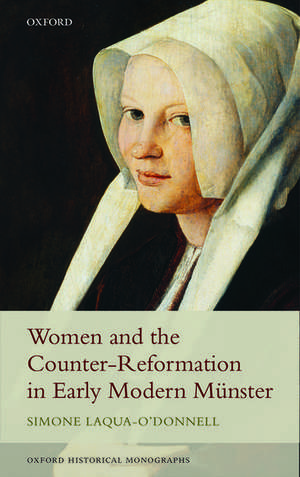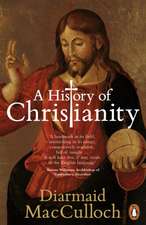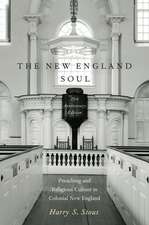Women and the Counter-Reformation in Early Modern Münster: Oxford Historical Monographs
Autor Simone Laqua-O'Donnellen Limba Engleză Hardback – 27 mar 2014
Din seria Oxford Historical Monographs
- 19%
 Preț: 497.26 lei
Preț: 497.26 lei - 12%
 Preț: 310.34 lei
Preț: 310.34 lei - 30%
 Preț: 539.99 lei
Preț: 539.99 lei - 15%
 Preț: 244.01 lei
Preț: 244.01 lei - 13%
 Preț: 532.53 lei
Preț: 532.53 lei - 30%
 Preț: 499.46 lei
Preț: 499.46 lei - 30%
 Preț: 497.67 lei
Preț: 497.67 lei - 30%
 Preț: 499.46 lei
Preț: 499.46 lei - 30%
 Preț: 498.68 lei
Preț: 498.68 lei - 30%
 Preț: 604.98 lei
Preț: 604.98 lei - 30%
 Preț: 497.63 lei
Preț: 497.63 lei - 24%
 Preț: 496.31 lei
Preț: 496.31 lei - 30%
 Preț: 498.68 lei
Preț: 498.68 lei - 22%
 Preț: 497.81 lei
Preț: 497.81 lei - 25%
 Preț: 556.27 lei
Preț: 556.27 lei - 14%
 Preț: 539.57 lei
Preț: 539.57 lei - 30%
 Preț: 500.29 lei
Preț: 500.29 lei - 13%
 Preț: 533.57 lei
Preț: 533.57 lei - 25%
 Preț: 569.72 lei
Preț: 569.72 lei - 30%
 Preț: 610.82 lei
Preț: 610.82 lei - 34%
 Preț: 1153.34 lei
Preț: 1153.34 lei - 51%
 Preț: 614.88 lei
Preț: 614.88 lei - 34%
 Preț: 1195.31 lei
Preț: 1195.31 lei - 34%
 Preț: 1035.84 lei
Preț: 1035.84 lei - 34%
 Preț: 1006.40 lei
Preț: 1006.40 lei - 29%
 Preț: 864.39 lei
Preț: 864.39 lei - 34%
 Preț: 1160.09 lei
Preț: 1160.09 lei - 34%
 Preț: 1432.67 lei
Preț: 1432.67 lei - 31%
 Preț: 328.46 lei
Preț: 328.46 lei - 34%
 Preț: 574.40 lei
Preț: 574.40 lei - 34%
 Preț: 1067.93 lei
Preț: 1067.93 lei - 34%
 Preț: 1004.67 lei
Preț: 1004.67 lei - 31%
 Preț: 331.22 lei
Preț: 331.22 lei - 34%
 Preț: 1153.28 lei
Preț: 1153.28 lei - 34%
 Preț: 1254.66 lei
Preț: 1254.66 lei - 34%
 Preț: 946.79 lei
Preț: 946.79 lei - 34%
 Preț: 962.63 lei
Preț: 962.63 lei - 34%
 Preț: 1126.38 lei
Preț: 1126.38 lei - 31%
 Preț: 469.27 lei
Preț: 469.27 lei - 23%
 Preț: 332.04 lei
Preț: 332.04 lei - 28%
 Preț: 375.23 lei
Preț: 375.23 lei - 34%
 Preț: 1049.14 lei
Preț: 1049.14 lei - 34%
 Preț: 1036.73 lei
Preț: 1036.73 lei - 51%
 Preț: 757.67 lei
Preț: 757.67 lei - 34%
 Preț: 1082.61 lei
Preț: 1082.61 lei - 34%
 Preț: 1155.39 lei
Preț: 1155.39 lei - 31%
 Preț: 328.53 lei
Preț: 328.53 lei - 34%
 Preț: 1110.12 lei
Preț: 1110.12 lei - 31%
 Preț: 487.75 lei
Preț: 487.75 lei - 34%
 Preț: 1153.41 lei
Preț: 1153.41 lei
Preț: 742.75 lei
Preț vechi: 1069.47 lei
-31% Nou
Puncte Express: 1114
Preț estimativ în valută:
142.14€ • 147.85$ • 117.35£
142.14€ • 147.85$ • 117.35£
Carte tipărită la comandă
Livrare economică 03-09 aprilie
Preluare comenzi: 021 569.72.76
Specificații
ISBN-13: 9780199683314
ISBN-10: 019968331X
Pagini: 230
Ilustrații: 3 black and white images
Dimensiuni: 150 x 223 x 22 mm
Greutate: 0.42 kg
Editura: OUP OXFORD
Colecția OUP Oxford
Seria Oxford Historical Monographs
Locul publicării:Oxford, United Kingdom
ISBN-10: 019968331X
Pagini: 230
Ilustrații: 3 black and white images
Dimensiuni: 150 x 223 x 22 mm
Greutate: 0.42 kg
Editura: OUP OXFORD
Colecția OUP Oxford
Seria Oxford Historical Monographs
Locul publicării:Oxford, United Kingdom
Recenzii
This is an important study. It is rich in detail, nuance and insight.
This is a refreshing approach and a welcome contribution to the existing literature on the Counter Reformation ... The book will be of particular interest to scholars and students interested in women's history and Catholic Reformation Europe, as well as urban history.
this is a fine study, well thought-out and well written. The author shows a clear command of the sources and relevant literature as well as a keen sensitivity to their uses and limitations ... the book provides a solid example of how gender might be used to broaden our understanding of the impact of confessionalization.
Weaving together the stories of a variety of women from different strata of society, Laqua-O'Donnell presents a patchwork of experience that is neither formulaic nor expected. It is the range of female lives studied here that makes the work so compelling, moving beyond those areas where women were directly affected by Tridentine reform to analyse the indirect impact of a heightened religious environment on married women and women at the margins of society.
Women and the Counter-Reformation in Early Modern Münster is a model of first-rate social and gender history. Buttressed by impressive research, the book is crisply written and compelling in its revelation of the human face of women trying to survive, pray, and love in one German city. Dispelling a number of misconceptions about early modern Catholic women and religion, Laqua-O'Donnell has crafted a concise and compelling work of scholarship that is also a pleasure to read.
In this interesting and important work, Simone Laqua-O'Donnell offers a new and challenging view of how the Tridentine decrees that explicitly affected women were received, understood, challenged, manipulated, negotiated, and implemented in Münster, over the course of roughly one hundred years, from the conclusion of the Council of Trent in 1563 until the mid- to late seventeenth century. This thought-provoking study makes a valuable contribution to current scholarship in several areas and topics of early modern studies, including women's and gender studies, urban history, the history of the Counter-Reformation, historical anthropology, confessionalization, and social disciplining. Although Laqua-O'Donnell's arguments are complex and will challenge the specialist, this book is so lucidly written that undergraduates being introduced to these themes and concerns will also be able to profit from it.
Laqua-O'Donnell's well-researched and engagingly written book contributes to Reformation studies in several significant ways. She investigates the experiences of different groups of women in the city of Münster which, after the notorious attempt to establish an Anabaptist kingdom, was returned rigorously to Catholicism. The rich material analysed in the book, so far under-explored, supports Laqua-O'Donnell's argument for the sustained study of the multifaceted influence of 'gender' in how religious reforms were actually received and experienced by 'common' people in different sectors of sixteenth-century society ... This book is to be recommended for readers interested in womens roles and experiences in 'real life' during the sixteenth century and in the aftermath of the Council of Trent.
Laqua-O'Donnell has written an important case-study which mines valuable sources and reinforces many of the themes of both urban studies and studies of Catholicism in early modern Germany. The perspective of women is important and illuminating and the book is part of a wider trend among historians who are challenging the way scholarship in this field has tended to play down gender issues.
Laqua-O'Donnell should be commended for building her study around the voices and actions of women. We gain a wonderfully nuanced picture of the complicated way that class, marital status, and individual personality influenced both legal and ecclesiastical policies. Her book provides yet another example of the benefits of detailed archival research to improving our understanding of women's lives in early modern Europe.
One must ... applaud O'Donnell for the breadth and potential depth of her research here ... she has accomplished the primary, unglamorous, but indispensable task of a historian: she has called the basic evidence of women's lives out of past darkness and into scholarly light.
This is a refreshing approach and a welcome contribution to the existing literature on the Counter Reformation ... The book will be of particular interest to scholars and students interested in women's history and Catholic Reformation Europe, as well as urban history.
this is a fine study, well thought-out and well written. The author shows a clear command of the sources and relevant literature as well as a keen sensitivity to their uses and limitations ... the book provides a solid example of how gender might be used to broaden our understanding of the impact of confessionalization.
Weaving together the stories of a variety of women from different strata of society, Laqua-O'Donnell presents a patchwork of experience that is neither formulaic nor expected. It is the range of female lives studied here that makes the work so compelling, moving beyond those areas where women were directly affected by Tridentine reform to analyse the indirect impact of a heightened religious environment on married women and women at the margins of society.
Women and the Counter-Reformation in Early Modern Münster is a model of first-rate social and gender history. Buttressed by impressive research, the book is crisply written and compelling in its revelation of the human face of women trying to survive, pray, and love in one German city. Dispelling a number of misconceptions about early modern Catholic women and religion, Laqua-O'Donnell has crafted a concise and compelling work of scholarship that is also a pleasure to read.
In this interesting and important work, Simone Laqua-O'Donnell offers a new and challenging view of how the Tridentine decrees that explicitly affected women were received, understood, challenged, manipulated, negotiated, and implemented in Münster, over the course of roughly one hundred years, from the conclusion of the Council of Trent in 1563 until the mid- to late seventeenth century. This thought-provoking study makes a valuable contribution to current scholarship in several areas and topics of early modern studies, including women's and gender studies, urban history, the history of the Counter-Reformation, historical anthropology, confessionalization, and social disciplining. Although Laqua-O'Donnell's arguments are complex and will challenge the specialist, this book is so lucidly written that undergraduates being introduced to these themes and concerns will also be able to profit from it.
Laqua-O'Donnell's well-researched and engagingly written book contributes to Reformation studies in several significant ways. She investigates the experiences of different groups of women in the city of Münster which, after the notorious attempt to establish an Anabaptist kingdom, was returned rigorously to Catholicism. The rich material analysed in the book, so far under-explored, supports Laqua-O'Donnell's argument for the sustained study of the multifaceted influence of 'gender' in how religious reforms were actually received and experienced by 'common' people in different sectors of sixteenth-century society ... This book is to be recommended for readers interested in womens roles and experiences in 'real life' during the sixteenth century and in the aftermath of the Council of Trent.
Laqua-O'Donnell has written an important case-study which mines valuable sources and reinforces many of the themes of both urban studies and studies of Catholicism in early modern Germany. The perspective of women is important and illuminating and the book is part of a wider trend among historians who are challenging the way scholarship in this field has tended to play down gender issues.
Laqua-O'Donnell should be commended for building her study around the voices and actions of women. We gain a wonderfully nuanced picture of the complicated way that class, marital status, and individual personality influenced both legal and ecclesiastical policies. Her book provides yet another example of the benefits of detailed archival research to improving our understanding of women's lives in early modern Europe.
One must ... applaud O'Donnell for the breadth and potential depth of her research here ... she has accomplished the primary, unglamorous, but indispensable task of a historian: she has called the basic evidence of women's lives out of past darkness and into scholarly light.
Notă biografică
Simone Laqua-O'Donnell studied at the University of Cambridge and was a PhD student at Balliol College, Oxford. In 2006 she was awarded a Research Fellowship at Downing College, Cambridge. She joined the University of Birmingham in 2009.












